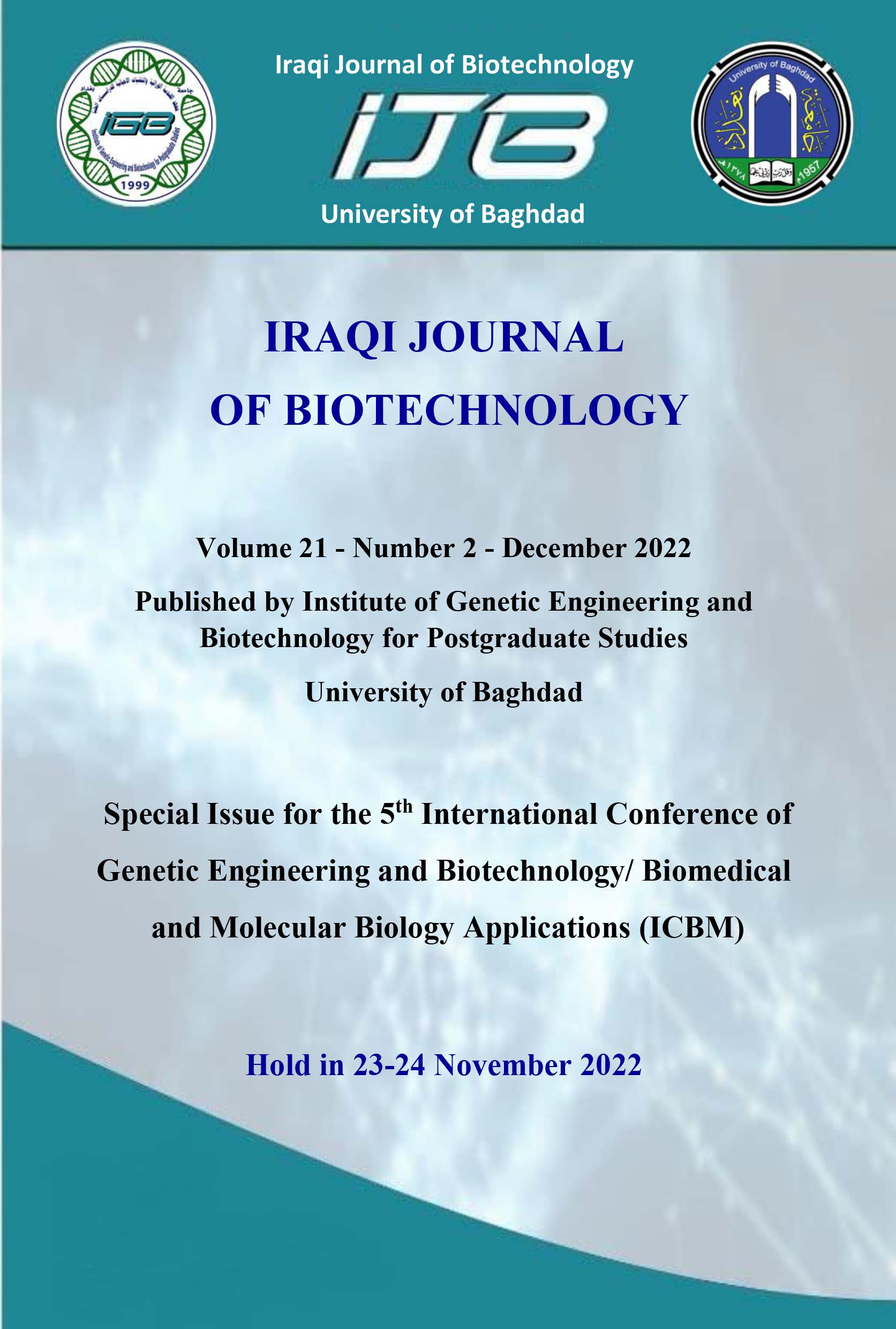Association of Glutathione-S-Transferase Omega 2 (GSTO2) Gene Polymorphism with Incidence of Polycystic Ovary Syndrome in Iraqi Women
Abstract
Polycystic ovary syndrome (PCOS) is the most frequent endocrinological disorder, occurring in young women. The goal of this study was to look at a possible link between GSTO2 N142D (rs156697) polymorphisms and PCOS, investigating the effect of these polymorphisms on the levels of Luteinizing hormone (LH), Follicle stimulating hormone (FSH), and Testosterone. This study was carried out in the Laboratories of the Institute of Genetic Engineering and Biotechnology for Postgraduate Studies - at the University of Baghdad during the period from 1 November 2021 until the end of June 2022, The PCOS patients were taken from the Kamal Al-Samarrai infertility treatment Hospital in Baghdad. Women with PCOS (n=50) and apparently healthy subject (n=50), were enrolled and GSTO2 gene exon 5 (A to G; rs156697) were determined using Taqman genotyping assay by RT-PCR. The results showed that the distribution of genotypes and alleles frequencies at rs156697 A>G polymorphism, The frequency of wild AA genotype was Highly Significant (P<0.01) lower in PCOS patients than in apparently healthy subjects (28% versus 70%, respectively, p<0.01). In contrast, the frequency of heterozygous AG genotype was highly significantly (p<.0.01) higher in PCOS patients when compared with apparently healthy subjects (64% versus 24%, respectively, χ2==9.091, OR=1.62, p<0.01), The heterozygous AG genotype represent as a risk factor for PCOS incidence in Iraqi women, no significant differences in the frequency percentage of GG genotypes between apparently healthy subjects and PCOS patients. Hormonal analysis for LH, FSH, and Testosterone was performed by using Cobas e 411(automated principle). The results indicate that the mean serum LH significantly increase (P<0.05) in PCOS patients (7.26 ±1.37) mIU/mL compared with a mean of controls (4.32 ±0.39) mIU/mL. The results of FSH in the present study indicate that the mean of serum Testosterone was highly significantly (P<0.01) in PCOS patients (0.566 ±0.10) mIU/mL compared to the mean of controls (0.254 ±0.02) mIU/mL.


